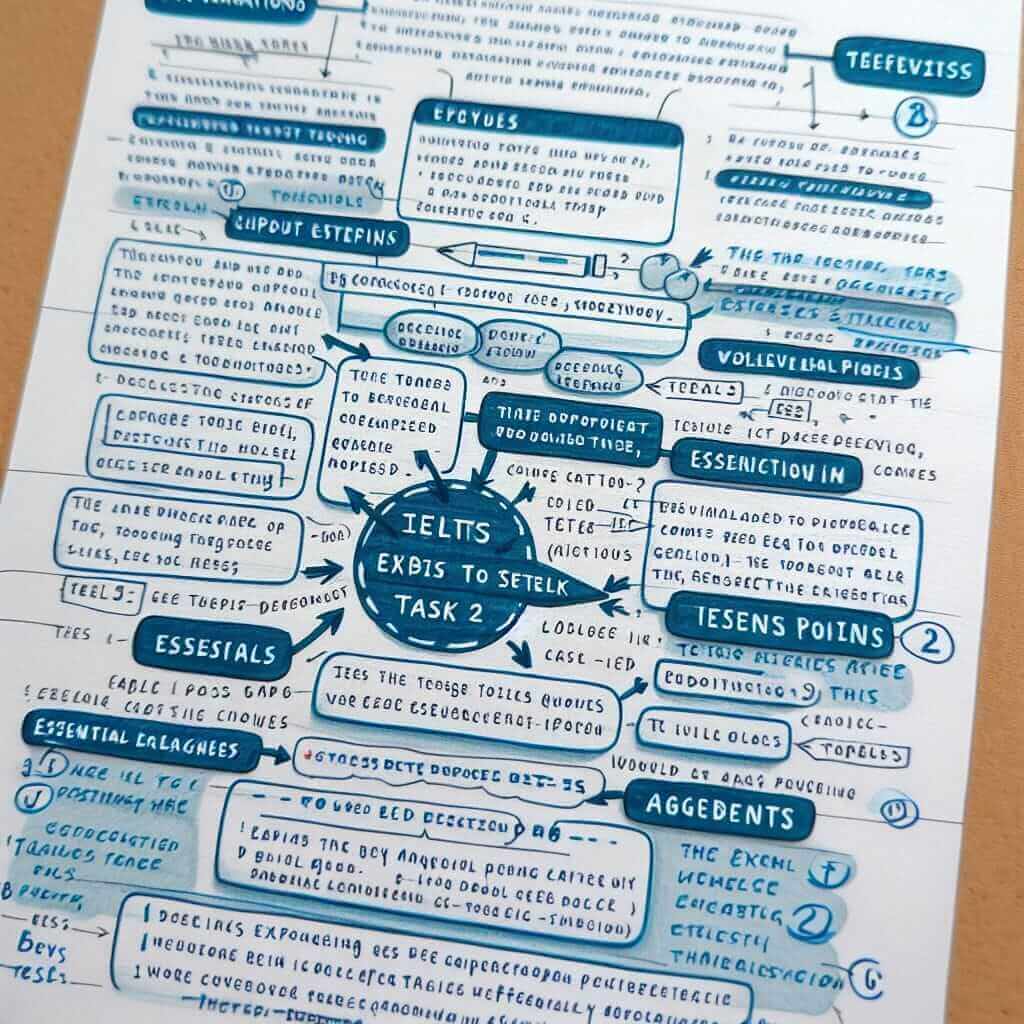As an IELTS instructor with over two decades of experience, I’ve witnessed firsthand the transformative power of effective writing instruction. This guide, inspired by the frequent search query “how to teach ielts writing pdf,” serves as a comprehensive resource for both educators and students navigating the intricacies of the IELTS Writing test.
Understanding the Importance of IELTS Writing Skills
The IELTS Writing test evaluates a candidate’s ability to articulate ideas clearly, structure arguments logically, and utilize a wide range of vocabulary and grammatical structures. A strong writing score is essential for those seeking academic or professional opportunities in English-speaking environments.
Effective Strategies for Teaching and Learning IELTS Writing
1. Master the Task Requirements
Both Task 1 (graph description or diagram explanation) and Task 2 (essay writing) come with specific instructions and require distinct approaches:
- Task 1: Focus on accurately summarizing key trends, comparing data, and using appropriate vocabulary for describing visuals.
- Task 2: Develop a clear and well-organized essay that presents a balanced argument, supported by relevant examples and evidence.
2. Develop Essential Writing Skills
Equip your students with the building blocks of effective writing:
- Grammar and Mechanics: Review essential grammar rules, punctuation, and sentence structures. Provide ample practice in error correction and editing.
- Vocabulary Enhancement: Encourage students to expand their vocabulary range, particularly academic and topic-specific words.
- Coherence and Cohesion: Teach strategies for using linking words, transition phrases, and cohesive devices to create a smooth flow of ideas.
- Paragraph Structure: Emphasize the importance of clear topic sentences, supporting details, and logical transitions between paragraphs.
3. Analyze Model Answers
Provide students with high-scoring sample answers from past IELTS tests. Guide them in analyzing the strengths of these answers, focusing on:
- Task Achievement: How effectively does the answer address the prompt and fulfill the task requirements?
- Coherence and Cohesion: How well are ideas connected within and between sentences and paragraphs?
- Lexical Resource: Is the vocabulary varied and appropriate for the topic?
- Grammatical Range and Accuracy: Are sentences grammatically correct and varied in structure?
4. Implement Effective Feedback Techniques
Offer constructive feedback that targets specific areas for improvement:
- Focus on one or two areas at a time: Avoid overwhelming students with too much feedback at once.
- Use a combination of written and oral feedback: Written comments provide a record for students to refer back to, while oral feedback allows for personalized explanations.
- Encourage peer review: Students can learn from each other by providing feedback on each other’s writing.

Example: Analyzing a Task 2 Essay Prompt
Prompt: Some people believe that the best way to improve public health is by increasing the number of sports facilities. Others, however, believe that other measures are required. Discuss both views and give your own opinion.
Analysis:
- This prompt requires an essay that explores both sides of the argument before presenting a clear personal opinion.
- Key vocabulary to consider: public health, sports facilities, alternative measures, preventative healthcare, healthy lifestyle.
- Potential arguments:
- For: Increased access to sports facilities can promote physical activity, reduce obesity and chronic diseases.
- Against: Other factors like diet, education, and access to healthcare play equally important roles in public health.
Tips for IELTS Writing Success
- Practice Regularly: Consistent writing practice is crucial for developing fluency and accuracy.
- Time Management: Allocate time effectively during the test to complete both tasks within the time limit.
- Proofread Carefully: Reserve a few minutes at the end to review and correct any errors in grammar, spelling, or punctuation.
- Seek Expert Guidance: Consider enrolling in an IELTS preparation course or working with a qualified tutor to receive personalized feedback and guidance.
Conclusion
Mastering the IELTS Writing test requires a combination of focused instruction, targeted practice, and constructive feedback. By understanding the test format, developing key writing skills, and utilizing effective learning strategies, students can approach the IELTS Writing test with confidence and achieve their desired scores.